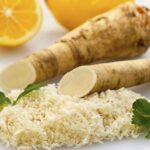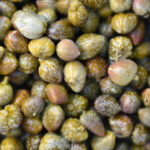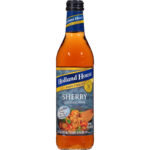Perhaps it’s just me but the first thing that comes to mind when I come across the word Martini is James Bond and his signature drink; vodka Martini, shaken not stirred. Fictional spy movies aside the Martini is a very popular cocktail. So popular in the late 1990s a trend developed where almost anything put in a cocktail glass had a “tini” added to the end of its name. Grateful we are past those days and the drink has survived all attacks on its dignity. In case it’s not clear let’s define the Martini.
Contents
What Is a Martini?
The classic Martini has just 3 elements to it; a spirit in the form of gin or vodka, vermouth and a garnish of lemon or olive. The exact origins of the Martini are unknown though a popular theory suggests the name comes from a popular brand of vermouth, Martini. Traditionally Martinis were made with gin but vodka Martinis have become just as popular. As to preparation Martinis are traditionally stirred and this is recommended if only alcohol is used. Any other non-alcoholic additions would open the door for shaking instead of stirring. The constant element in the Martini recipe is vermouth. What is vermouth?
What Is Vermouth?
Vermouth is an aromatised and fortified wine. Aromatised wines are flavoured with strong aromatic scents such as spices, flowers and herbs. Fortified wines are wines which have other spirits, brandy in the case of vermouth added to them. The name vermouth comes from the French pronunciation of the German word vermut which is wormwood. Wormwood is one of the aromatics used in the aromatisation of vermouth. Vermouth comes in varieties such as dry and sweet and you can find versions that are pigmented. The recommended variety of vermouth for the Martini is dry vermouth. So what can you use as a substitute for vermouth in your Martini?
Cocchi Americano
Cocchi Americano is an aromatised wine just like vermouth. It originates from the Asti region of Italy and is the brainchild of one Giulio Cocchi, created in 1891. An aromatised wine makes a perfect substitute for another aromatised wine. Cocchi americano makes a great substitute for dry vermouth because it is intensely flavoured. It is flavoured with cinchona bark, gentian root and Artemesia. It has both fruity and bitter notes. It also provides honey-like flavour and velvety smoothness to the Martini. You can use Cocchi Americano as a substitute for vermouth in both your vodka Martinis and gin Martinis.
Aperitif
An aperitif is a wine that is designed to be served before a meal, as an appetiser hence the name. Aperitifs tend to be dry wines. Salers aperitif is a great substitute for vermouth in a Martini. It traces its origins to the Auvergne region of France and the recipe dates back to 1885. Salers aperitif is aromatised by infusing gentian and mellowed in oak before the aperitif is bottled. It brings citrus-like flavour combined with a soft bitterness. It has a distinct flavour of herbs that comes from the gentian, celery, artichokes and tarragon that is used in flavouring it. Salers aperitif is best used in a dry vodka Martini but can still work reasonably with gin.
Sake
This vermouth substitute for Martinis, unfortunately, calls us back to the aforementioned dark ages when any drink mixture poured into cocktail glass had “tini” added to the end of it. Sake was not spared and the Saketini was born. Dark ages aside sake does work well as a vermouth substitute in Martinis. The dry Japanese rice wine works well with gin and vodka in Martinis. It is best to use dry varieties of sake to get the best out of it as a substitute for vermouth in your Martini. If you want your Martini to be stiffer or just have a little more character don’t be afraid to tip the scales in favour of more sake.
Sherry
Another substitute for vermouth in your Martinis is sherry. Not the most likely for purists but if you love a dirty Martini and a savoury flavour then sherry works well for you. Dirty Martinis are called so when any element used in it is not clear like it’s traditional ingredients of gin, vodka and vermouth. Sherry is a digestif wine, traditionally served after a meal supposedly to aid digestion. Digestifs tend to be sweet. You can get wonderful dry versions with nutty flavours. There are lots of sherry varieties to choose from and they will bring different elements to your Martini.
Umeshu
Umeshu is another substitute for vermouth that you may not have heard about before. It’s popular in Japan and is made from fermented, salted and pickled plums known as umeboshi. The umeboshi are steeped in sake or shochu. Sochu umeshu tends to be syrupy and sweet while sake umeshu is dry, acidic and savoury. Both versions of umeshu work great as a substitute for vermouth in your Martinis. You will find that sake umeshu will bring a floral yet savoury flavour to your Martinis.
Sauvignon Blanc
One of the easier vermouth substitutes to get your hands on is good old sauvignon blanc. The white wine derives its name from the grape used to make it. The name sauvignon blanc is believed to come from Sauvage which translates to wild and blanc which translates to white. The grape was known to grow in the wild in the region of Bordeaux where the wine comes from. The wine is commonly made by combining grapes from different stages along the growth process with unripe acidic grapes, partly ripe peppery flavoured grapes and fully ripe sugary grapes all going into the mix together. Sauvignon blanc is described as having a crisp and clear flavour which will blend very well with either gin or vodka, whichever you base your Martinis on.
You have a few great substitutes for vermouth if you want to try something different or just can’t get your hands on vermouth. Sauvignon blanc will be the easiest to find. Sherry while also easy to find is for those who prefer their Martinis dirty. For a bit of edge, you can use the Japanese rice wine sake or the prune based umeshu. If you can get your hands on them and want to stick to the original flavour as much as possible try Cocchi Americano or an aromatised Aperitif.







